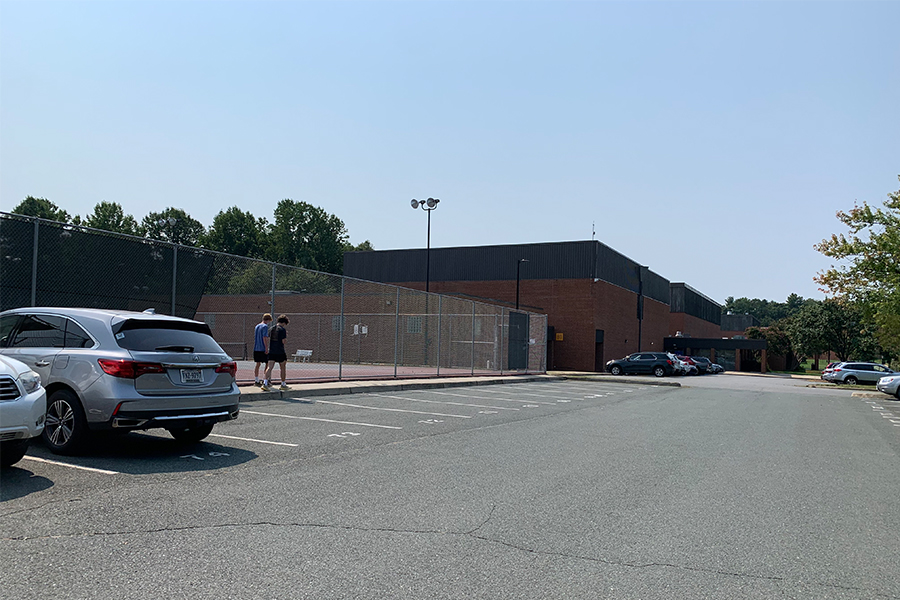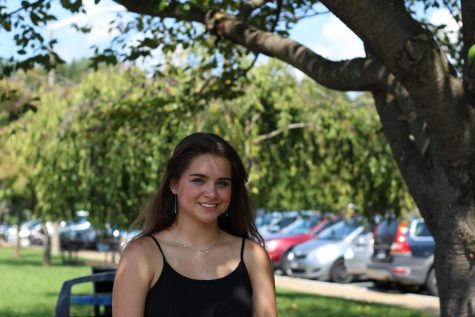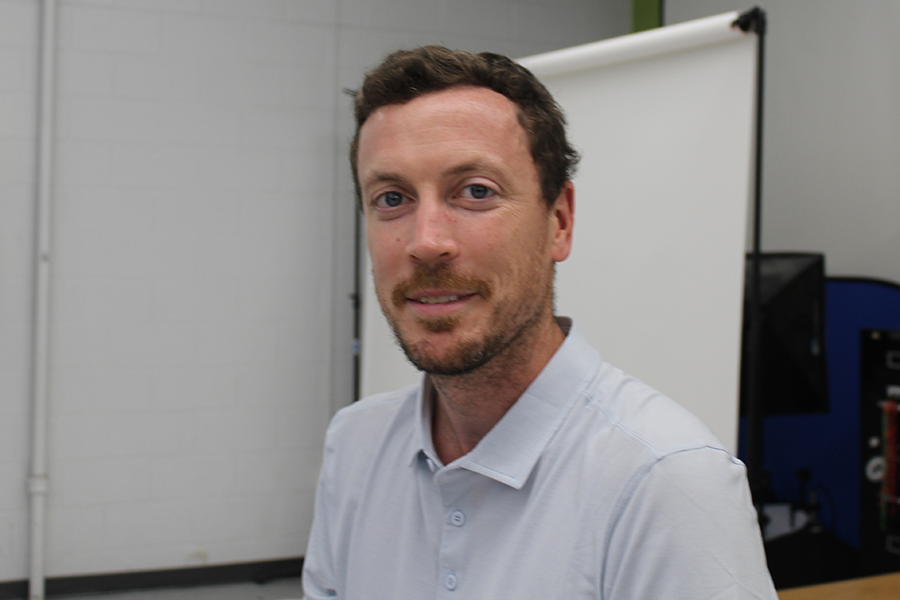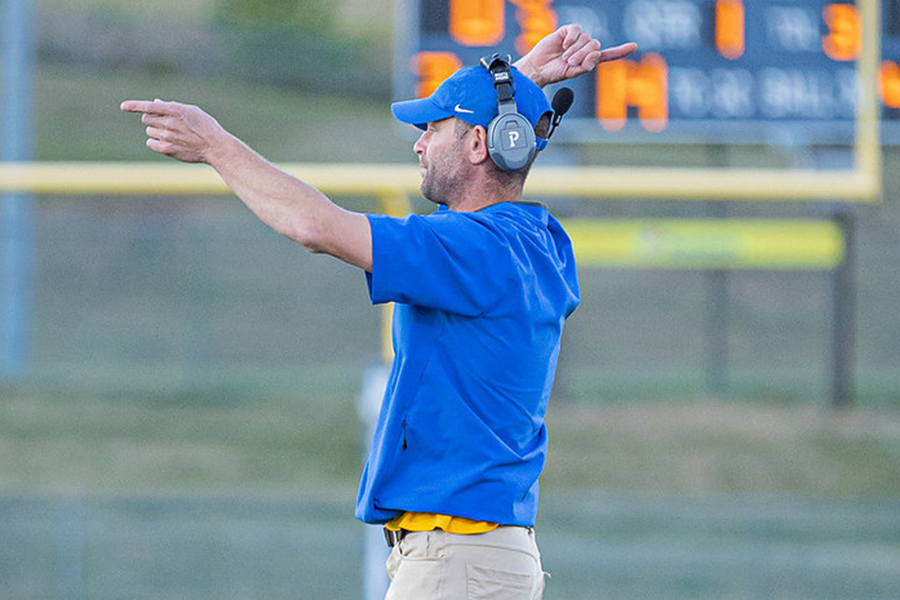Parking Causes Headaches for Students and Administration
Credit: Claire McMahon
Assistant principal Doug Granger is planning for a variety of parking changes for next school year.
March 28, 2022
At the beginning of the 2021 school year, the Western community expressed serious concerns regarding the lack of parking spaces made available to juniors. Assistant Principal and Director of Parking at WAHS, Doug Granger, explains that finding a solution has been difficult. When Granger started at Western this July, parking for the upcoming school year was prioritized.
Granger realized that the demand for parking spots would be too great for Western’s limited supply, “We have more drivers per capita than the other high schools per student and we have fewer spots.” Specifically, Western has 404 available parking spaces, 600 upperclassmen, and approximately 135 staff members.
Granger ran into more problems such as limited space due to the construction of the new language pods in the rear of the school, parking stickers not arriving, and spot numbers being paved over. Bringing these factors into consideration, Granger made the executive decision to prioritize parking for staff members and seniors.
At the beginning of the school year, Granger’s plan was to determine where parking was available and attempt to provide the junior class with parking opportunities. During the first few days of school, Granger monitored the upper lot and open spaces to establish a traffic pattern and determine which spots went unused.
After two weeks of observation, Granger realized there were open spots. With this information, he decided to relocate those who had a spot in the upper lot down to excess staff spots and announced a lottery for the distribution of 40 parking passes. These upper lot passes are year-long, unlike the semester parking passes.
Many feel the parking situation could have been handled before the start of school with clearer communication, as students and parents were not informed about the potential distribution of more parking passes until late September.
Both students and parents alike were affected by the confusion around the parking situation. Students were encouraged by the administration to carpool, have parents drive them, or ride the bus. However, many parents cannot afford to drive their kids to school and do not view riding the bus as a viable option due to their tendency to run late.
Presently, students who do have a parking space in the upper lot continue to voice frustrations with leaving school in the afternoons. Juniors have to wait up to 30 minutes to leave while administrators halt all traffic to allow buses to exit the school. To further complicate the problem, parents have begun to pick up their kids in both the upper lot and senior lot, leading to more traffic congestion. The introduction of more cars adds additional congestion to already small parking lots.
Granger explains the reason why building more parking spaces is not as easy as it seems: “When it went through the protocols in the county up to the Board of Supervisors, it was decided that they didn’t want to build those spots. And one of a couple of reasons I’ve heard is they don’t want to dig up, you know, pretty grass and trees to build a parking lot… Another is that the traffic on 250 is already busy enough, why add many more cars to the road? But for us, from our point of view, it’s a need that our community has for their students to be able to park.”
Moving forward, Granger plans to change the way this problem is addressed. For the immediate future, he has been working with local businesses to investigate the possibility of satellite parking, “The last couple of weeks, I’ve been calling businesses and churches in the area and there have been some people from the central office making some inquiry and so on. Are there parking lots where we could possibly have a shuttle?”
Granger plans to continue to monitor the empty spots and how to best utilize them. He is considering several options, such as students who attend CATEC and Center I sharing spots.
Looking into next year, Granger hopes to start the process sooner, and is looking into the possibility of parking spots based on a point system. He also wishes to open the lottery to juniors earlier and implement a few changes. The parking passes will be semester based and students without licenses will not be able to apply.
Granger has been meeting with the directors of Transportation and Building Services trying to find a sustainable solution for the future. Realistically, Granger does not expect a new parking lot for next year, “They’re waiting, it takes time, you know, they have to allocate the money and make the plans and then order the equipment. And it’s a long process for building anything but fingers crossed at the beginning of next year.”









